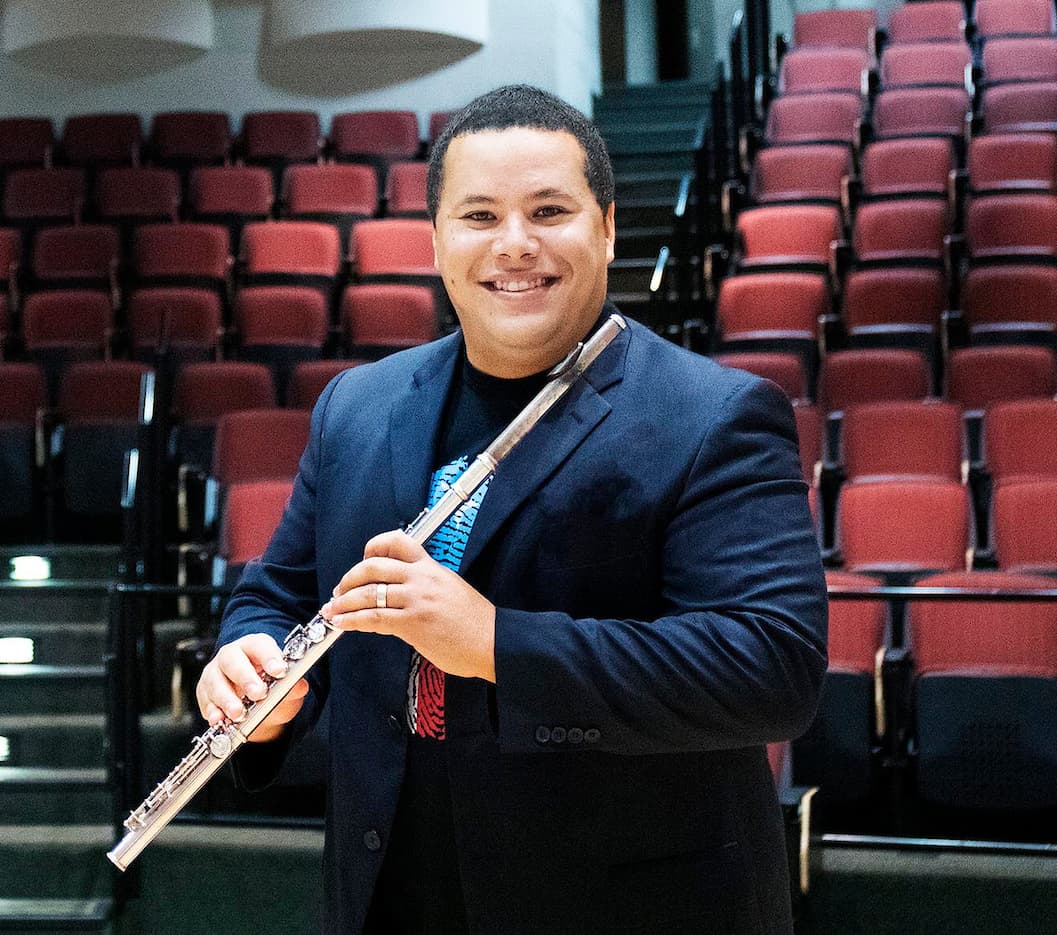
The message behind a UF professor’s Grammy-winning song
For Grammy- and Emmy-winning University of Florida professor José Valentino Ruiz, Ph.D., the flute is more than an instrument: It’s a window into global cultures and a tool for healing.
Ruiz, who performs as José Valentino, won his second Latin Grammy Nov. 19. After taking home the trophy as audio engineer and flutist on “Todo Pasa,” 2019’s Best Christian Album (Spanish Language), the music business and entrepreneurship professor won for Best Classical Contemporary Composition for the song “Sacre” with co-composer Carlos Fernando López.
In the song, Ruiz’s flute and López’s piano intertwine and alternate, symbolizing the need to leave room for others to be heard — a particularly relevant message during a divisive time in America.
“There's a need for us to be able to listen and to be attentive, to be able to sit down and just have conversation with one another,” Ruiz said. “There's sort of a mutual reverence that is occurring when we're playing so that it's not merely a showcase of virtuosity, but more of a dialogue. I think it serves as a great representative model, even though it's just two instruments, of what democracy could look like.”
We asked Ruiz about the meaning behind the song and how he plans to follow up his fourth Grammy nomination.
How does “Sacre” relate to the current moment?
The composition advocates for unity and equity and the celebration of everything that makes us beautiful as human beings. It is a call for us to preserve those things that we deem as sacred: life itself, relationships, our cultural representations, who we are and our ability to express ourselves with one another.
